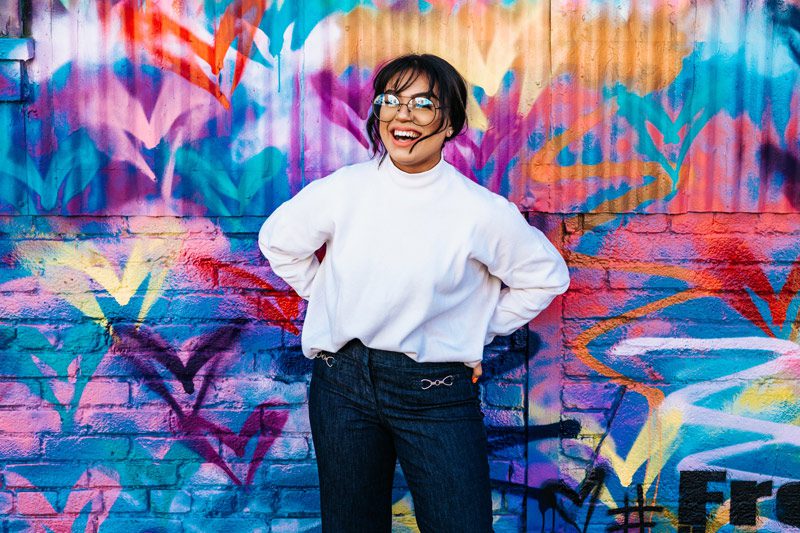Body image covers so many aspects of our feelings about our appearance, from how we think others perceive our looks to comparing ourselves to ‘cultural norms.’ It even goes beyond appearance, affecting many people’s beliefs about what their bodies can and cannot do physically. With mainstream and social media channels at our fingertips 24/7, it’s easier than ever to compare ourselves to others.
Failing to address issues with body image can lead to further problems down the line, which is why it’s crucial not to sweep it under the carpet. Fortunately, there are some things you can do to get a handle on your body image. While it won’t be easy, consistency and kindness to yourself can go a long way. Here are three ways you can treat body image issues to overcome these challenges.
Start with social media
Research suggests that adopting unhealthy social media habits can negatively influence users’ body image. Many people can separate the edited photos they see on Instagram from their own body image. But some can’t help comparing themselves to these pictures, which are often misleading and create a false reality. Even if you know the photos aren’t real, it’s hard to remember that when you’re feeling bad about yourself.
Some studies suggest that it’s not just revered, glamorous celebrities who invoke this involuntary response. People are actually more likely to compare themselves to acquaintances or distant peers when browsing social media. This could be because it’s easier to compare yourself to someone you have met or know than to a celebrity whose life is completely different from yours.
But these platforms aren’t all doom and gloom, and adopting healthier habits can actually help to boost body image satisfaction. Researchers have found that women who expose themselves to social media accounts with positive body images felt better about their own bodies. Balancing out your feed to follow accounts that make you feel uplifted is a good way to keep social media in your life without letting it harm your body image.
Reframe ideals
If we asked you to picture the perfect body, what would you envision? For females, perhaps it’s a Barbie-like build, with a flat stomach and slim features. Meanwhile, males may focus more on their height or having a V-shape figure. For years, society has peddled the notion of what an ‘ideal’ body looks like for both men and women.
But it’s important to remember that there is no such thing as the perfect body. While it’s important to look after your physical health and fitness, your body in peak fitness might not necessarily look like Cristiano Ronaldo’s or Serena Williams.’ Chasing what society deems ‘ideal’ body types can leave you always wanting more, which can be to the detriment of your mental wellbeing.
It’s also important to remember that these arbitrary body standards change almost every year. Once curves were in fashion, then super-slim bodies came into fashion. Focus on being healthy rather than perfect.
Seek professional help
As with any issue related to your physical or mental health, the best way to treat it is often to seek the help of a professional. Whether that’s a counseling service, a GP, or another avenue of support, taking these steps toward improving your body image can help prevent other troubling issues down the line.
One past study revealed that almost two-thirds of adolescents admitted experiencing some level of body dissatisfaction. Research suggests that people who suffer from body image concerns at this stage in their life tend to experience feelings of depression as adults.
To sum up
Fortunately, more is being done now than ever before to support people who suffer from issues around their body image. Not only is professional help more accessible via online chat services and in-person consultations, but social media is also starting to have a more positive impact, too. Body-positive accounts are becoming more popular among users on platforms like Instagram and Twitter, posting neutral images or inspiring content to help people feel more positive about their appearance.
Overcoming body image issues starts with the individual. Unfortunately, there is no one-size-fits-all cure. However, there are many resources available to help with body image issues, so if you or a loved one is dealing with these problems, then take the time to see which is the best approach for you.
About the Author: James Ritter – I am a digital consultant with a particular interest in addressing mental health issues faced by both young people and adults. I majored in creative writing in university and am always eager to expand my knowledge around different subjects.
Photo by Tyler Nix on Unsplash
The opinions and views expressed in any guest blog post do not necessarily reflect those of www.rtor.org or its sponsor, Laurel House, Inc. The author and www.rtor.org have no affiliations with any products or services mentioned in the article or linked to therein. Guest Authors may have affiliations to products mentioned or linked to in their author bios.
Recommended for You
- The Truth about Relapse in Addiction Recovery - April 14, 2025
- The Power of Peer Support in Mental Health Recovery - April 10, 2025
- Artificial Intelligence in Anxiety Management: How AI Helps Users Cope with Anxiety Symptoms - April 3, 2025





